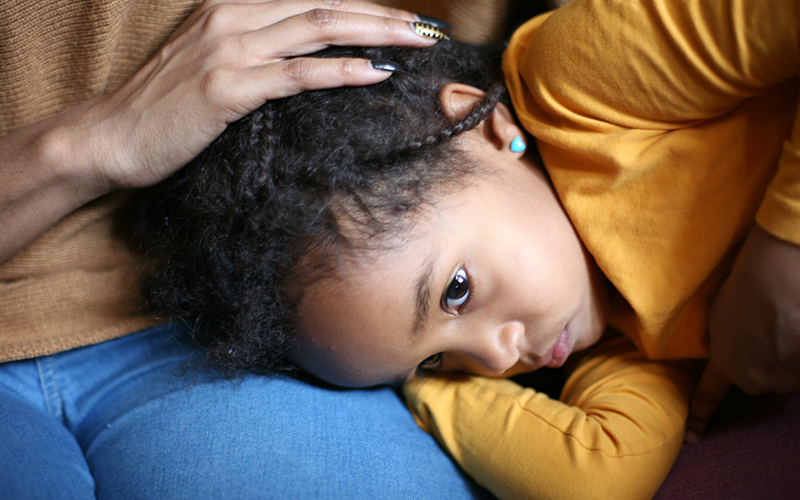
Every kid processes emotions differently and some benefit from professional support when coping with a major life change, grief, or witnessing or experiencing violence.

An event does not need to be big, immediately distressing, or violent to be experienced as traumatic. While an accident or the death of a loved one certainly impacts a child, the cause of trauma is not always obvious — it can also arise from a series of emotional wounds sustained over time. Trauma is defined by how one experiences an event or series of events, not the events themselves. Any difficult situation can leave a mark. And signs of trauma can be hard to spot, overlooked, or mistaken for depression or even defiance.
Signs children may have experienced trauma and need help include problems with eating, sleeping, anger, or concentration. But signs can also look like behavioral problems, including poor self-control or trouble forming relationships. If you notice any changes in behavior or unusual emotional symptoms, it’s important to investigate them and seek extra support if necessary. And if you are aware that a child has experienced a potentially distressing event like community violence, a big move, or other family change, don’t hesitate to reach out to a mental health professional.